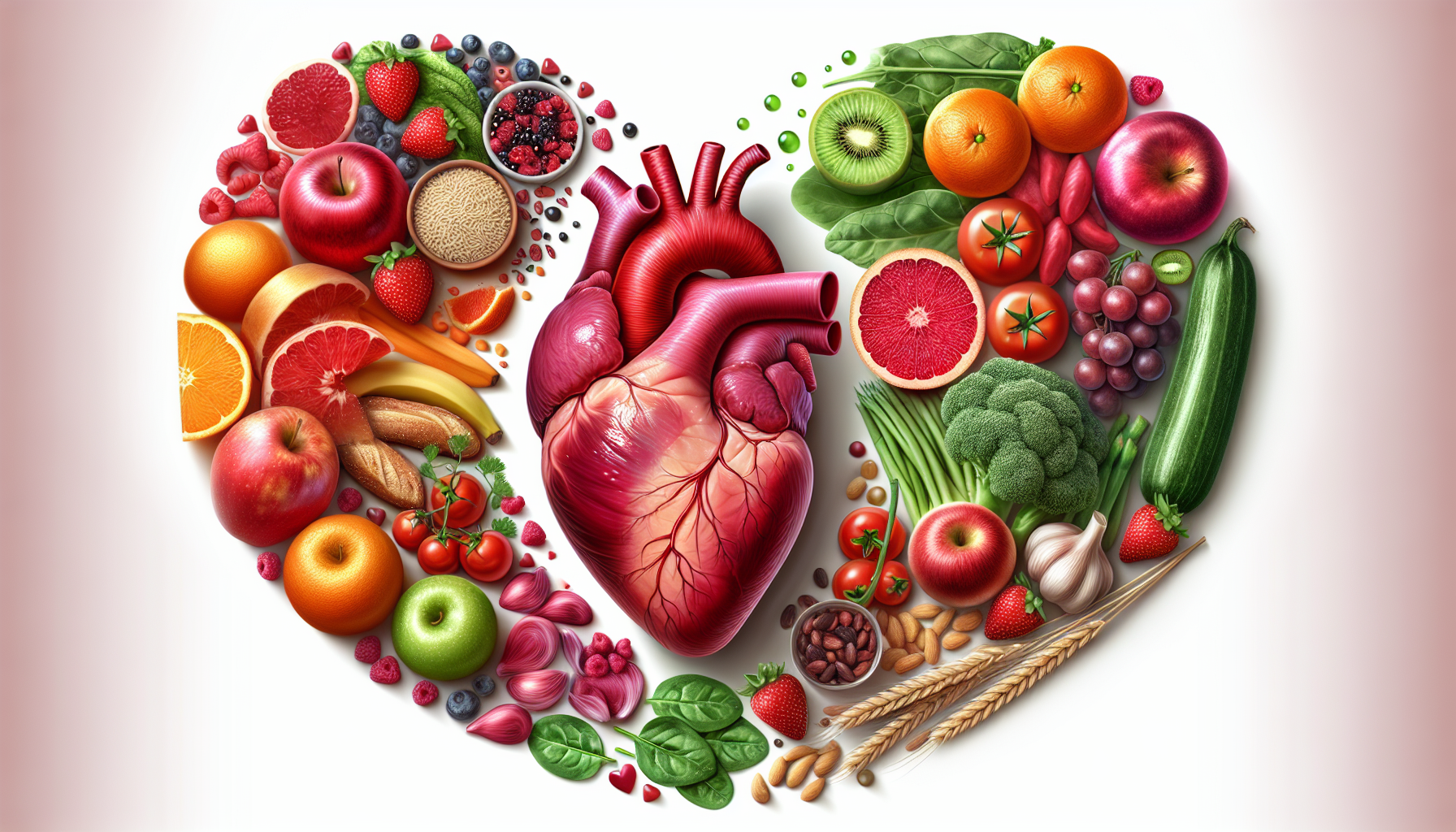Cardiovascular diseases (CVDs) remain a leading cause of morbidity and mortality worldwide. A growing body of evidence suggests that nutritional deficiencies play a critical role in the onset and progression of these diseases. Understanding the link between diet and heart health is essential for developing effective prevention and treatment strategies.
The Importance of a Balanced Diet for Heart Health
A balanced diet is crucial for maintaining cardiovascular health. Nutrients such as omega-3 fatty acids, antioxidants, vitamins, and minerals all contribute to heart function and vascular integrity. For instance, omega-3 fatty acids, found in fish and flaxseeds, are known for their anti-inflammatory properties and potential to reduce the risk of heart arrhythmias and lower blood pressure.
However, the modern diet often lacks these essential nutrients, which can lead to deficiencies and, consequently, increased risk for CVDs. A diet high in processed foods, sugars, and unhealthy fats can contribute to the development of atherosclerosis, hypertension, and other cardiovascular conditions.
Identifying Nutritional Deficiencies
A deficiency in certain nutrients has been directly associated with cardiovascular health risks. For example:
- Vitamin D: Low levels of vitamin D have been linked to hypertension, diabetes, and inflammation, which are risk factors for heart disease.
- Magnesium: This mineral plays a pivotal role in heart rhythm and vascular tone. Deficiencies can lead to arrhythmias and hypertension.
- B Vitamins: Vitamins B6, B12, and folic acid are essential for reducing homocysteine levels, an amino acid associated with an increased risk of CVDs.
To ensure adequate intake of these nutrients, a diet rich in fruits, vegetables, whole grains, and lean proteins is recommended. For more detailed guidance on cardiovascular health, Avix Health provides a comprehensive resource on Cardiovascular Health.
Addressing Nutritional Deficiencies for Better Heart Health
Omega-3 Fatty Acids
Omega-3 fatty acids are critical for heart health. They can lower blood triglyceride levels, reduce the risk of arrhythmia, and slow down the buildup of atherosclerotic plaques. Including sources like salmon, mackerel, and walnuts in your diet can help maintain these essential fatty acid levels. Learn more about their benefits in the article, "The Importance of Omega-3 Fatty Acids for Heart Health".
Antioxidants
Antioxidants combat oxidative stress, which can damage heart cells and blood vessels. Foods rich in antioxidants include berries, dark chocolate, and green tea. They not only protect the cardiovascular system but also support overall health. External resources like the American Heart Association provide additional insights into the role of antioxidants in heart health.
Fiber
Dietary fiber is essential for maintaining healthy cholesterol levels and preventing atherosclerosis. High-fiber foods like oats, beans, and certain fruits can help reduce the absorption of cholesterol into the bloodstream. For specific dietary recommendations, Harvard Health has published an informative guide on fiber and heart health.
Plant Sterols and Stanols
These naturally occurring substances found in plants can help lower cholesterol levels. They are present in small amounts in many fruits, vegetables, nuts, and seeds. Some products are also fortified with sterols and stanols for additional heart health benefits. The Mayo Clinic offers further reading on how plant sterols and stanols can affect cholesterol.
Potassium
Potassium is vital for blood pressure regulation. A potassium-rich diet can help counteract the effects of sodium and reduce the strain on the cardiovascular system. Bananas, oranges, and potatoes are good sources of this mineral. The National Institutes of Health (NIH) provides a detailed resource on potassium and its impact on heart health.
Lifestyle Factors Influencing Nutritional Absorption
The body’s ability to absorb and utilize nutrients is affected by several lifestyle factors:
- Physical Activity: Regular exercise can improve the efficiency of nutrient use and uptake, contributing to overall heart health. Avix Health’s resource on Fitness can help you start a heart-healthy exercise routine.
- Stress Management: Chronic stress can negatively impact digestive health and nutrient absorption. Techniques such as mindfulness and meditation can help manage stress levels.
- Sleep Quality: Adequate sleep is necessary for the body’s healing and replenishment, affecting how well it processes and uses nutrients.
Solutions for Improving Nutrition and Heart Health
To address nutritional deficiencies and enhance heart health, it is essential to:
- Adopt a Heart-Healthy Diet: Emphasize the intake of nutrient-rich foods that support cardiovascular function.
- Regular Screening: Regular health checkups and blood tests can help identify nutritional deficiencies early. Articles like "Evaluating the Benefits of Cardiovascular Screening Tests" discuss the importance of such evaluations.
- Supplementation: In some cases, dietary supplements may be necessary to correct deficiencies. However, it is crucial to consult with a healthcare provider before starting any supplementation regimen.
Conclusion
Cardiovascular disease and nutritional deficiencies are intricately linked, and addressing these deficiencies is key to preventing and managing CVDs. By understanding the essential nutrients required for heart health and taking proactive steps to include them in your diet, you can significantly reduce the risk of heart disease.
For those interested in the connection between lifestyle choices and heart health, articles such as "Combating Sedentary Lifestyle for Heart Health" offer practical advice for making heart-healthy lifestyle changes.
Remember, it’s never too late to start taking care of your heart. With the right information and resources, you can make informed choices that will benefit your cardiovascular system for years to come.



